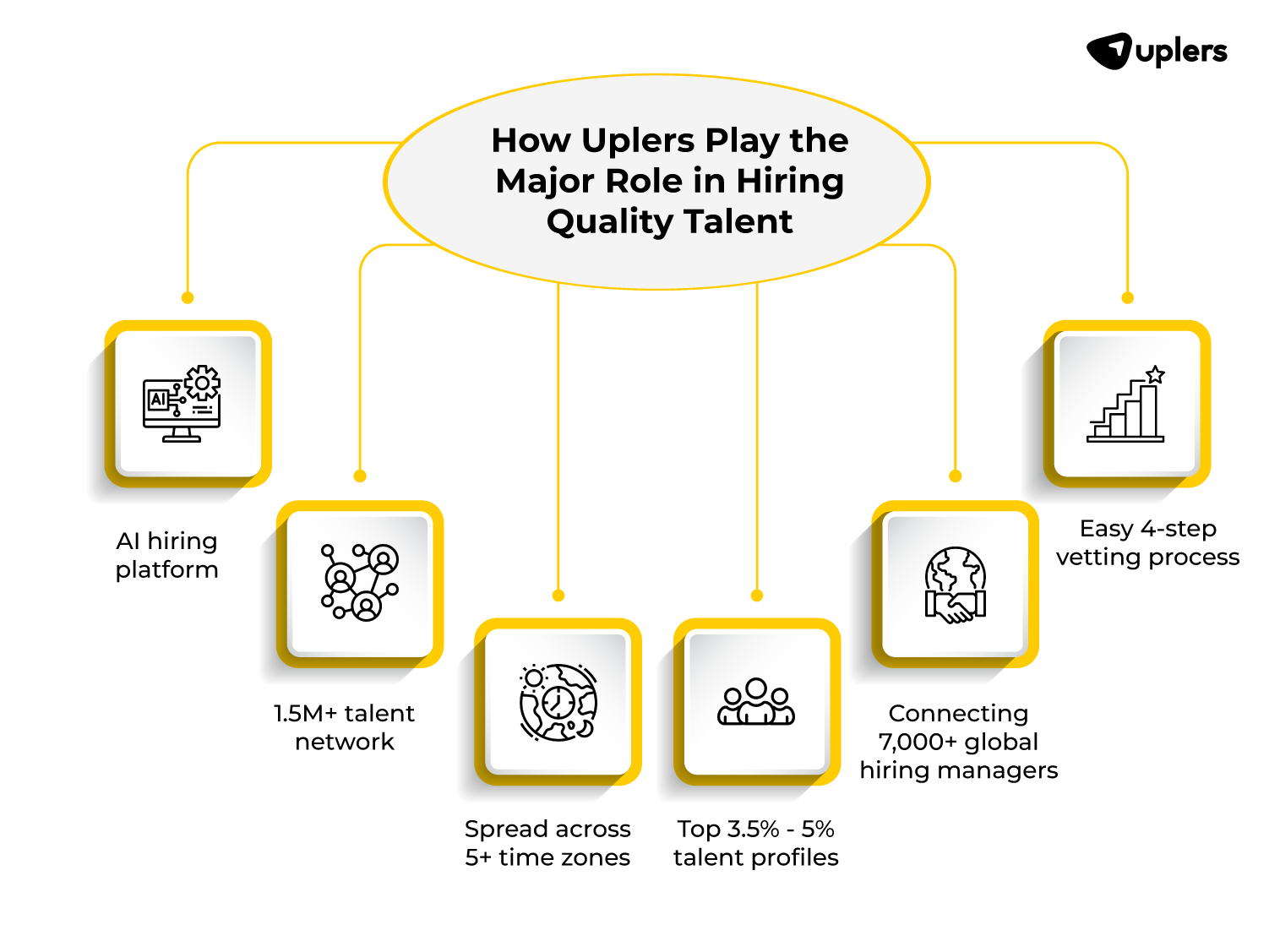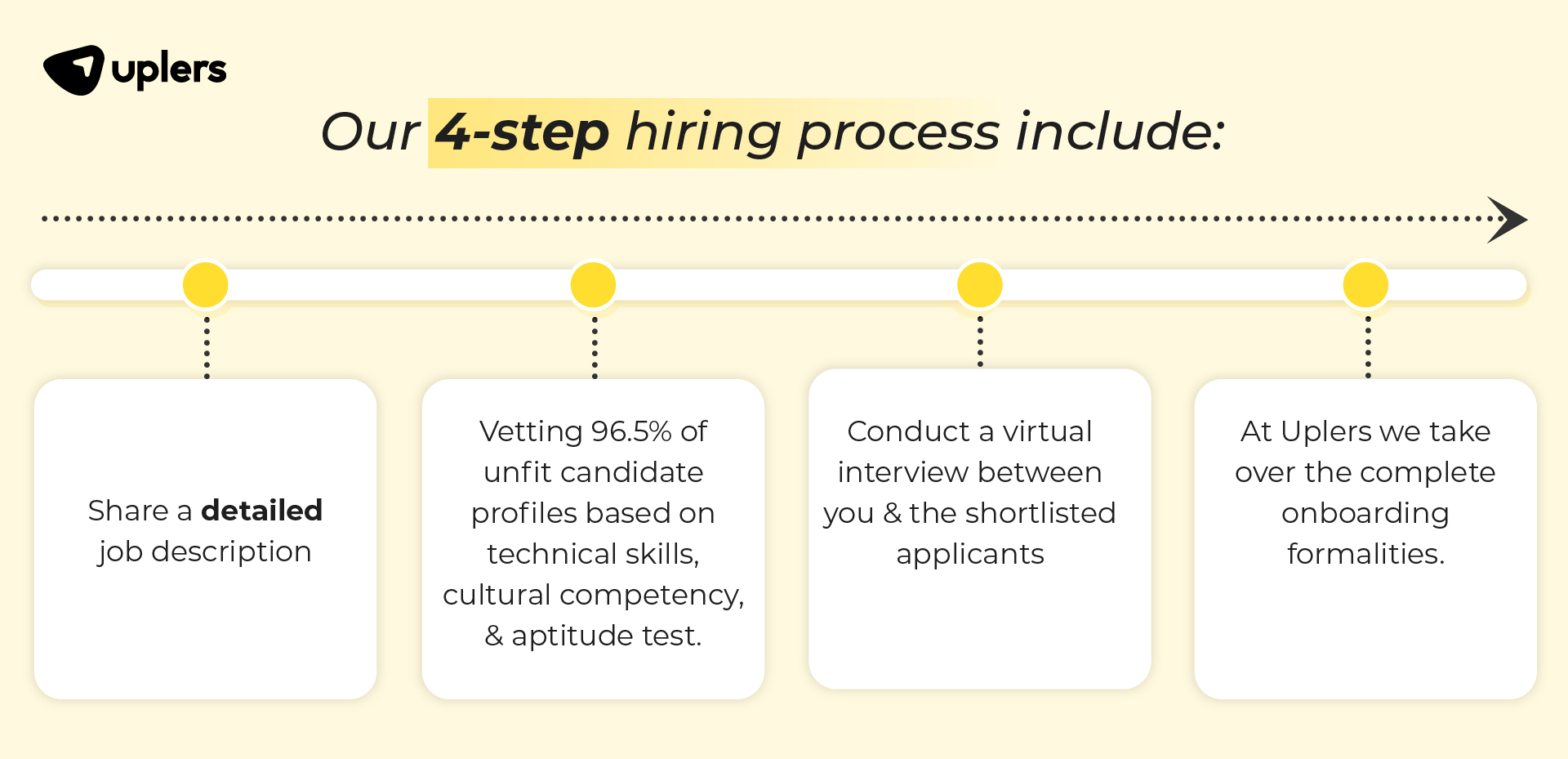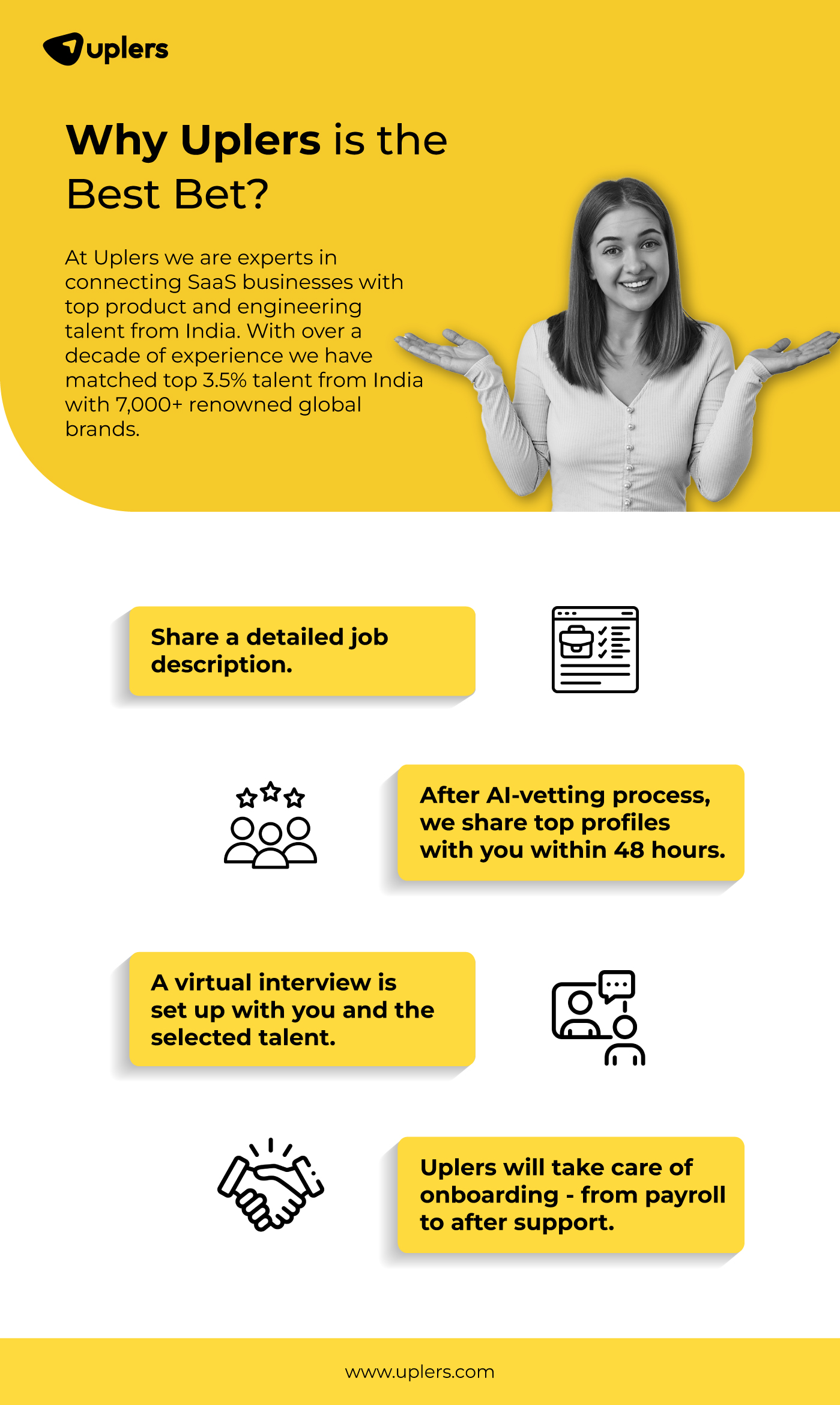The move toward cloud-native infrastructure and containerized applications is not just a trend anymore – it’s a global standard in 2025. Tech enterprises, SaaS platforms, and fast-scaling startups are all embracing Kubernetes for automating deployment, scalability, and management of containerized applications.
But as the complexity grows, so does the need for specialized engineering talent. With Kubernetes adoption pacing forth, the demand to hire Kubernetes experts is also rising. They should not only have an understanding of how to run clusters, but also how to architect resilient, cost-efficient, and scalable systems.
In this blog, let’s explore the key reasons Kubernetes experts are essential in today’s infrastructure teams. Along with that let’s understand what you as hiring managers need to know before bringing them on board.
The Rise of Kubernetes in Modern Infrastructure
Originally developed by Google and now maintained by the Cloud Native Computing Foundation (CNCF), kubernetes is the de facto container orchestration platform for production environments. According to CNCF’s report published as of April 1st 2025, 93% of companies use kubernetes in production.
Why the surge?
This is because Kubernetes allows teams to:
- Automate scaling and failover.
- Deploy updates with zero downtime.
- Abstract infrastructure complexity for developers.
- Achieve cloud portability across AWS, Azure, and GCP.
This level of abstraction and flexibility are the underlying reasons that make Kubernetes central to the cloud-native ecosystem. This is why hiring managers of tech companies are increasingly considering hiring Kubernetes developers for optimizing its full potential.
What Kubernetes Developers Bring to the Table
To hire Kubernetes experts is not only about managing containers, they are DevOps-focused cloud engineers who bring a cross-functional skill set spanning infrastructure, automation, and deployment strategy.
Here’s what Kubernetes developers typically bring to the table:
- Deep understanding of Kubernetes architecture, pods, nodes, and control planes
- Experience with Helm charts, Kustomize, and other configuration management tools
- Proficiency in container runtime (Docker, containerd) and CI/CD integration
- Familiarity with monitoring/logging tools like Prometheus, Grafana, and Fluentd
- Knowledge of networking policies, security contexts, and resource quotas
By hiring Kubernetes developers you are hiring infrastructure strategists who ensure smooth, efficient, and secure applications in a complex and distributed environment.
Key Skills to Look for When Hiring Kubernetes Experts
To effectively evaluate Kubernetes talent, as hiring managers you must prioritize both hard and soft skills.
Technical Skills
- Kubernetes configuration and orchestration.
- YAML and Helm chart templating.
- Experience with cloud platforms (AWS, GCP, Azure).
- Infrastructure as Code (Terraform, Pulumi).
- CI/CD integration using Jenkins, ArgoCD, or GitHub Actions.
- Security and compliance (RBAC, network policies, secrets management).
Non-technical Skills
- Cross-team communication.
- Troubleshooting under pressure.
- Ability to document, audit, and refactor infrastructure.
- Strategic thinking about scaling and cost optimization.
With infrastructure getting more code-driven, several teams are considering hiring cloud native app developers with Kubernetes fluency. This helps bridge the gap between traditional DevOps and modern cloud-native practices.
Use Cases Where Kubernetes Developers Add Maximum Value
Not all projects require Kubernetes – but many benefit from it significantly. Kubernetes developers are especially impactful in these scenarios:
Microservices Architecture
Kubernetes is built for managing dozens of independently deployable services.
Global SaaS platforms
Need to serve customers across multiple regions? Kubernetes offers seamless support for multi-zone and multi-cloud deployments.
CI/CD at scale
Automate deployments and rollbacks using Kubernetes-native tooling like ArgoCD or Flux.
High-traffic APIs and event-driven systems
Kubernetes autoscaling ensures that your infrastructure adjusts based on demand in real time.
These use cases can also be a great fit for teams that are already investing in containerization and considering hiring AWS developers for scaling business in the cloud.
Cost, Efficiency, and Scalability Benefits of Hiring Kubernetes Talent
There’s a misconception that Kubernetes increases infrastructure costs due to complexity. The reality is, with the right talent in your team Kubernetes can unlock massive efficiency gains.
- Reduce cloud expenses by using autoscaling and appropriately sized workloads.
- Blue/green and canary deployments allow for faster feature rollouts.
- MTTR and downtime can be decreased with rolling upgrades and self-healing pods.
- Enhanced developer speed through infrastructure abstraction.
Hiring the right people lays the foundation for realizing these benefits. When you are hiring Kubernetes developers you are not just filling a DevOps role, you are investing in platform engineering that scales with your product.
In-House vs. Remote Kubernetes Hiring: What Works Best in 2025?
With the number of tech roles increasing in the list in 2025, remote-first hiring has become the norm for Kubernetes developers and it’s for good reasons:
- The position is task-based and extremely independent.
- The majority of platforms and tools are cloud-native and available from any location.
- Async collaboration takes place through Jira, Slack, Git, and DevOps dashboards.
That’s why several global companies are now adopting an India-first approach to access a vast pool of skilled and qualified professionals through vetted platforms such as Uplers. Their AI-vetting process shortlists the top 3.5% talent profiles from a 3M+ network using AI and human intelligence. These developers often come pre-trained in enterprise-grade tooling, cloud architecture, and remote collaboration best practices.
So whether you are hiring full-time or on contract basis, to tap into global markets will offer you a competitive edge in identifying qualified and affordable Kubernetes talent. This can be even more valuable when it comes to critical roles like backend developers for scaling business infrastructure.

Final Thoughts: Building a Future-Ready DevOps and Cloud Engineering Team
From shiny new tech to being a mission-critical infrastructure, Kubernetes has matured a long way. In 2025, it powers everything from ecommerce to gaming, fintech to edtech. And with the rise in platform engineering and SRE (Site Reliability Engineering) roles, the need to hire Kubernetes developers has become more urgent and strategic.















